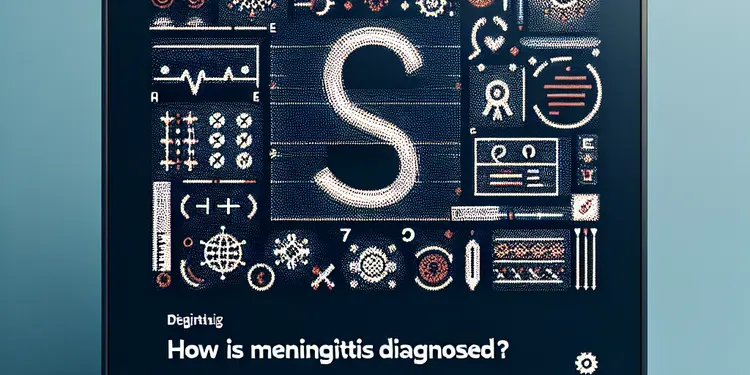
Find Help
More Items From Ergsy search
-

How is a nut allergy diagnosed?
Relevance: 100%
-

What are Nut Allergies?
Relevance: 86%
-

Is there a cure for nut allergies?
Relevance: 80%
-

What is the difference between a nut allergy and intolerance?
Relevance: 79%
-

What types of nuts can cause allergies?
Relevance: 79%
-

Can nut allergies develop later in life?
Relevance: 78%
-

Are nut oils safe for people with nut allergies?
Relevance: 78%
-

Can nut allergies be outgrown?
Relevance: 77%
-

What should I do if I think I have a nut allergy?
Relevance: 77%
-

What are the symptoms of a nut allergy?
Relevance: 75%
-

How can nut allergies be managed?
Relevance: 73%
-

Is epinephrine the only treatment for severe nut allergy reactions?
Relevance: 65%
-

What should I tell my family and friends about my nut allergy?
Relevance: 65%
-

Can tree nuts and peanuts cause cross-reactions?
Relevance: 55%
-

Are there any recent treatments or research developments for nut allergies?
Relevance: 52%
-

Is it safe to eat foods labeled as 'may contain nuts'?
Relevance: 51%
-

How can I prevent cross-contamination with nuts in the kitchen?
Relevance: 50%
-

What foods should I avoid if I have a nut allergy?
Relevance: 50%
-

What are Dairy Allergies?
Relevance: 39%
-

How are food allergies managed in UK schools?
Relevance: 38%
-

Dealing with Seasonal Allergies
Relevance: 38%
-

How can eczema be diagnosed?
Relevance: 37%
-

How is asthma diagnosed?
Relevance: 36%
-

How is nettle rash diagnosed?
Relevance: 34%
-

Can I get the COVID jab if I have allergies?
Relevance: 33%
-

Can children with nut allergies safely attend school?
Relevance: 32%
-

What if I have an egg allergy, can I still get the flu vaccine?
Relevance: 31%
-

Can patients with drug allergies still take heart disease medications?
Relevance: 30%
-

How is gonorrhoea diagnosed?
Relevance: 27%
-

How is SAD diagnosed?
Relevance: 27%
-

How is psoriasis diagnosed?
Relevance: 27%
-

How is autism diagnosed?
Relevance: 27%
-

How is shingles diagnosed?
Relevance: 27%
-

How is meningitis diagnosed?
Relevance: 27%
-

How is whiplash diagnosed?
Relevance: 27%
-

How is tinnitus diagnosed?
Relevance: 27%
-

How is hypotony diagnosed?
Relevance: 27%
-

How is ADHD diagnosed?
Relevance: 27%
-

How is scabies diagnosed?
Relevance: 26%
-

Can orange juice be allergenic?
Relevance: 26%
Understanding Nut Allergies
Nut allergies are among the most common food allergies in the UK, and recognising them early is crucial for effective management and prevention of severe allergic reactions. Diagnosing a nut allergy involves a combination of medical history evaluations, physical examinations, and specific testing methods.
Initial Assessment
The diagnosis of a nut allergy typically begins with a visit to a healthcare professional, usually a general practitioner (GP) or an allergist. The initial assessment involves a thorough review of the patient's medical history, including any previous allergic reactions and dietary habits. The healthcare professional may ask about the timing and nature of reactions following nut consumption to ascertain the likelihood of an allergy.
Physical Examination
A physical examination may be conducted to check for signs of an allergic reaction or other related health issues. This can include looking for skin rashes, swelling, or respiratory problems. While this examination can provide clues, it often needs to be supported by further diagnostic tests to establish the presence of a nut allergy conclusively.
Skin Prick Test
One of the most common diagnostic tools for identifying nut allergies is the skin prick test. During this test, tiny amounts of allergens, including specific nuts, are introduced to the skin, usually on the forearm. If the patient is allergic, a small, itchy bump resembling a mosquito bite will develop at the site within 15 minutes. This test is generally safe and provides quick results, but it should be performed under medical supervision to manage any adverse reactions.
Blood Tests
Blood tests, specifically the ImmunoCAP test or radioallergosorbent test (RAST), measure the level of specific IgE antibodies in the blood in response to nut proteins. A higher level of these antibodies suggests a higher likelihood of an allergy. Blood tests can be particularly useful if skin prick tests are not advisable due to severe eczema or extensive skin conditions.
Oral Food Challenge
In certain cases, an oral food challenge may be necessary. This involves consuming small, gradually increasing amounts of nuts under strict medical supervision to monitor for any reactions. This test is considered the gold standard for diagnosing food allergies, but it is used with caution due to the risk of severe reactions and is usually performed in specialised clinics.
Diagnosis and Management
Based on the results from these tests, a diagnosis can be made. If a nut allergy is confirmed, the healthcare provider will work with the patient on an allergy management plan. This typically includes education on avoiding nut-containing foods, recognising symptoms of an allergic reaction, and carrying emergency medication like antihistamines or adrenaline auto-injectors (e.g., EpiPens) to treat reactions.
Understanding Nut Allergies
Nut allergies mean some people can't eat nuts without getting sick. This is common in the UK. It is important to know if you have a nut allergy so you can avoid getting very sick. Doctors can find out if you have a nut allergy by asking questions, doing check-ups, and running special tests.
Initial Assessment
To check for a nut allergy, you start by seeing a doctor. This could be your regular doctor or a special doctor called an allergist. The doctor will ask about your health and what happens when you eat nuts. They will want to know if you have felt sick or had a reaction after eating nuts before.
Physical Examination
The doctor might look at your body for signs of an allergy. They will check your skin for rashes, see if there’s any swelling, or if you have trouble breathing. These checks help the doctor but may need more tests to be sure about a nut allergy.
Skin Prick Test
The skin prick test is a way to check for nut allergies. Tiny bits of nuts are put on your skin, usually on your arm. If you are allergic, a small, itchy bump like a mosquito bite will show up in 15 minutes. This test is quick and safe but should be done by a doctor.
Blood Tests
Blood tests can also be used to check for nut allergies. They look for special things in your blood that react to nuts. If you have a lot of these, you might have a nut allergy. These tests are good if you can’t do a skin test because of skin problems.
Oral Food Challenge
Sometimes, doctors want to be really sure about an allergy, so they do an oral food challenge. This means eating tiny amounts of nuts at the doctor’s office to see if you react. This test is very careful and is done only in places that can handle any bad reactions.
Diagnosis and Management
After the tests, the doctor can say if you have a nut allergy. If you do, they will help you plan what to do. This plan might include knowing which foods to avoid, learning how to spot an allergic reaction, and carrying medicine like an EpiPen to stop bad reactions.
Frequently Asked Questions
What is the first step in diagnosing a nut allergy?
The first step is typically a detailed discussion with a healthcare professional about your medical history and any allergic reactions you've experienced.
Can a physical examination help diagnose a nut allergy?
Yes, a doctor might conduct a physical examination to look for signs of allergic reactions and assess overall health.
What role do allergy tests play in diagnosing nut allergies?
Allergy tests, such as skin prick tests or blood tests, are often used to confirm whether someone has a nut allergy.
How is a skin prick test performed for nut allergies?
A small amount of nut allergen is placed on the skin, which is then lightly pricked or scratched. If a reaction occurs, it could indicate an allergy.
What does a positive skin prick test indicate?
A positive skin prick test suggests that you may have an allergy to the specific nut tested, though it must be interpreted by a doctor.
Can blood tests diagnose nut allergies?
Yes, blood tests can measure specific antibodies in the blood to determine if there's an allergy to nuts.
What is the most common blood test for nut allergies?
The most common blood test is the Specific IgE test, which measures the level of IgE antibodies to specific nuts.
Are there any risks associated with skin prick tests?
Skin prick tests are generally safe. However, there is a slight risk of a severe allergic reaction, so they are conducted under medical supervision.
How accurate are diagnostic tests for nut allergies?
Diagnostic tests are quite accurate, but no single test is perfect. Often, results need to be confirmed with patient history and sometimes challenge tests.
What is an oral food challenge?
An oral food challenge involves eating small amounts of the nut under medical supervision to see if it triggers a reaction. It is considered the most definitive test for diagnosing food allergies.
When is an oral food challenge recommended?
An oral food challenge is recommended when other test results are inconclusive or when it's necessary to confirm whether a person has outgrown an allergy.
Is it possible to misdiagnose a nut allergy through tests?
Yes, false positives and false negatives can occur, which is why a thorough evaluation and patient history are critical.
What role does patient history play in diagnosing nut allergies?
Patient history is crucial as it provides context for test results and helps in understanding the likelihood of an allergy.
Can allergy testing be conducted on children?
Yes, allergy testing can be performed on children, although the approach might differ based on age and symptoms.
Are there non-invasive tests available for nut allergies?
While skin prick and blood tests are minimally invasive, wholly non-invasive, reliable tests for nut allergies are not yet available.
Can you test for multiple nut allergies at once?
Yes, both skin prick tests and blood tests can be designed to check for reactions to multiple nuts simultaneously.
How should one prepare for a nut allergy test?
Usually, it's recommended to avoid antihistamines before certain tests, but specific instructions should be given by a healthcare provider.
Can a nut allergy diagnosis change over time?
Yes, allergies can change. Some children outgrow allergies, while others may develop new ones. Re-testing may be necessary.
What should one do after a nut allergy is diagnosed?
Once diagnosed, it's important to avoid nuts and carry an epinephrine auto-injector if advised by your doctor. An allergy action plan should be in place.
Why is it important to diagnose a nut allergy properly?
Proper diagnosis is essential to avoid unnecessary food restrictions and to ensure that necessary precautions are taken to prevent severe allergic reactions, like anaphylaxis.
How do doctors find out if someone is allergic to nuts?
The first step is to talk with a doctor or nurse. Tell them about your health and any allergies you have had before.
Can a doctor check if someone is allergic to nuts?
A doctor can look for signs of a nut allergy by doing a check-up. The doctor might:
- Look at your skin for rashes or swelling.
- Ask if you feel itchy or if you have trouble breathing after eating nuts.
- Use a special test called a skin prick or blood test to check for nut allergies.
If you think you have a nut allergy, it is important to talk to a doctor. They can help find out if you are allergic to nuts and tell you what to do next.
Here are some tools that might help you:
- Allergy bracelet: Wear a bracelet that shows you have a nut allergy.
- Allergy App: Use an app on your phone to help you remember what foods to avoid.
Yes, a doctor might check your body to see if you have allergies. They also see how healthy you are.
How do allergy tests help find out if someone is allergic to nuts?
Allergy tests can help doctors see if someone might be allergic to nuts.
If you think you are allergic to nuts, a doctor might do a special test to check.
These tests help keep you safe by showing what foods you should avoid.
Sometimes, doctors use skin tests or blood tests to find out about nut allergies.
It is important to talk to a doctor if you think you have a nut allergy.
Doctors use tests to find out if someone is allergic to nuts. They can use a skin test or a blood test to check for allergies.
How do doctors check for nut allergies using a skin prick test?
Doctors can check if you have a nut allergy with a simple skin test.
Here is how the test works:
- The doctor puts a tiny drop of liquid with a bit of nut on your arm.
- Then, they use a small, clean needle to prick the skin where the drop is.
- If you are allergic, a small bump, like a mosquito bite, might appear. It could be itchy.
After the test, the doctor will tell you what the bump means.
If you want, you can ask a parent or friend to come with you. Bringing a book or toy can also help you feel more comfortable during the test.
A little bit of nut is put on the skin. Then, the skin is gently poked or scratched. If the skin has a reaction, it might mean there is an allergy.
What does a positive skin prick test mean?
A positive skin prick test means you might be allergic to something.
The test checks to see if your skin gets red or bumpy when it touches a tiny bit of what you might be allergic to.
If your skin gets red or bumpy, this shows you could have an allergy.
For help, you can talk to a doctor. They can tell you more about what to do next.
Using picture cards or apps can also help you understand better.
A skin prick test can show if you might have an allergy to a certain nut. A doctor needs to check the test to be sure.
Can a blood test show if you are allergic to nuts?
A blood test can help doctors see if nuts make you sick. It checks your blood for signs that nuts might be a problem for you.
If you think you might be allergic to nuts, it is important to tell an adult or a doctor. They can help you understand what to do next.
You can use pictures or videos to learn more about nut allergies. Ask someone to explain words you do not know.
Yes, doctors can use blood tests to check if you are allergic to nuts. The test looks for special signs in your blood called antibodies.
What blood test is used to find nut allergies?
Doctors use a special blood test to see if someone is allergic to nuts. The test looks for something called "IgE antibodies." These are like little signs in the blood that show if your body doesn’t like nuts.
To help understand, you can:
- Ask a doctor or nurse to explain the test.
- Use pictures or videos about nut allergies.
- Talk about it with family or friends.
The most common blood test is the Specific IgE test. It checks how much IgE is in your blood for different nuts.
Are skin prick tests safe?
Skin prick tests are usually safe, but there can be some risks. Sometimes people get a small bump or itch where the test was done. Very rarely, someone might have a bigger reaction. If you are worried, talk to your doctor or nurse.
Here's what can help:
- Ask a doctor or nurse if you have questions.
- Stay with a friend or family member when you go for the test.
- Breathe slowly and stay calm during the test.
Skin prick tests are mostly safe. But, there is a small chance of a strong allergic reaction. This is why doctors are there to watch over you during the test.
How good are tests for finding nut allergies?
Tests can show if someone is allergic to nuts. But, tests are not always right.
These are some tips to help you understand better:
- Ask a doctor to explain the test results to you.
- Use pictures or videos about nut allergies to learn more.
- Read with a friend or family member who can help you understand.
Tests to find out what's wrong are very good, but not always perfect. Sometimes, doctors look at a person's past health or do special checks to be sure.
What is an oral food challenge?
An oral food challenge is a special test. Doctors use it to check if someone is allergic to a certain food.
During the test, a person eats a small amount of the food. The doctor watches to see if there is an allergic reaction.
This test helps doctors know which foods are safe to eat.
It's important to do this test in a doctor's office or hospital. This way, help is there if needed.
To understand this test better, use pictures or videos. Ask questions if something is confusing.
An oral food challenge is a test to see if someone is allergic to a nut.
The person eats a tiny bit of the nut while a doctor watches them carefully.
The doctor wants to see if the nut makes the person feel sick.
This test is the best way to find out if someone is allergic to the nut.
When should you have an oral food test?
A doctor might ask you to take a food test. This is to see if a food makes you sick. This test helps to find out what foods are safe for you. It is good to talk to your doctor. You can also ask someone you trust to help you. They can go with you to the doctor.
A doctor might suggest trying small amounts of food if they are unsure about an allergy or to see if a person has outgrown it.
Can doctors get it wrong when testing for a nut allergy?
Doctors use tests to check if someone has a nut allergy. Sometimes, the tests might not be right. This means a person might not have a nut allergy even if the test says they do, or they might have an allergy even if the test says they don't.
It helps to have a doctor explain the tests. You can also use pictures or videos to understand better. Always ask questions if something is unclear.
Yes, mistakes can happen. Sometimes a test says you have a problem when you don't (false positive). Sometimes a test says you don't have a problem when you do (false negative). This is why it is really important for the doctor to check everything carefully and ask about your health history.
How does a doctor's questions about the past help find out if someone is allergic to nuts?
Doctors ask about your health in the past. This helps them know if you are allergic to nuts.
Here is how it helps:
- Doctors ask if you felt sick after eating nuts before.
- They want to know if anyone in your family is allergic to nuts.
These questions help doctors understand your nut allergy better.
Helpful Tip: Use pictures or write down how you feel to help answer the doctor's questions.
Your health history is very important. It helps doctors understand your test results and see if you might have an allergy.
Can we test children for allergies?
Yes, we can test if children have allergies. A doctor or nurse can do the tests.
Here are some helpful tips:
- Talk to a doctor if you think your child has allergies.
- Keep a list of what makes your child feel unwell.
- Use pictures or videos to explain allergies to your child.
Yes, doctors can check if children have allergies. The way they do the test might change depending on how old the child is and what symptoms they have.
Can you test for nut allergies without needles?
Doctors use skin and blood tests to check for nut allergies. These tests do not hurt much. There are no tests for nut allergies that do not touch your skin or take blood yet.
Can you check if someone is allergic to more than one kind of nut at the same time?
Yes, there are tests to see if you are allergic to different nuts at the same time. These tests are called skin prick tests and blood tests.
How do you get ready for a nut allergy test?
Doctors say not to take some allergy medicines before some tests. Your doctor or nurse will tell you what to do.
Can a nut allergy change over time?
If you are told you have a nut allergy, it can sometimes change. This means you might not always be allergic, or it could get better or worse.
To stay safe, see your doctor often. They can check if your allergy is the same or different.
Remember, always be careful with nuts. Use tools like medical alert bracelets or allergy cards to let others know about your allergy.
Yes, allergies can change. Some kids stop having allergies, but others might get new ones. You might need to get checked again.
What to Do if You Have a Nut Allergy
If the doctor says you have a nut allergy, here is what to do:
- Stay away from nuts.
- Carry a special pen called an epinephrine auto-injector. The doctor will tell you if you need it.
- Have a plan ready for what to do if you have an allergic reaction. This can help keep you safe.
Why is it important to find out if someone is allergic to nuts?
Finding out if a person is allergic to nuts is very important.
If someone is allergic to nuts, they might feel very sick if they eat them.
Knowing about the allergy helps to keep them safe and healthy.
Doctors can help with special tests to see if someone is allergic.
There are tools and aids that can help remember what to avoid, like:
- Allergy bracelets
- Reading food labels carefully
- Asking adults for help
It is important to find out if you really have an allergy. This helps you know what foods you can eat safely. It also helps you avoid bad reactions, like a serious one called anaphylaxis.
Useful Links
Have you found an error, or do you have a link or some information you would like to share? Please let us know using the form below.
-->
This website offers general information and is not a substitute for professional advice.
Always seek guidance from qualified professionals.
If you have any medical concerns or need urgent help, contact a healthcare professional or emergency services immediately.
Some of this content was generated with AI assistance. We’ve done our best to keep it accurate, helpful, and human-friendly.
- Ergsy carfully checks the information in the videos we provide here.
- Videos shown by Youtube after a video has completed, have NOT been reviewed by ERGSY.
- To view, click the arrow in centre of video.
- Most of the videos you find here will have subtitles and/or closed captions available.
- You may need to turn these on, and choose your preferred language.
- Go to the video you'd like to watch.
- If closed captions (CC) are available, settings will be visible on the bottom right of the video player.
- To turn on Captions, click settings .
- To turn off Captions, click settings again.
More Items From Ergsy search
-

How is a nut allergy diagnosed?
Relevance: 100%
-

What are Nut Allergies?
Relevance: 86%
-

Is there a cure for nut allergies?
Relevance: 80%
-

What is the difference between a nut allergy and intolerance?
Relevance: 79%
-

What types of nuts can cause allergies?
Relevance: 79%
-

Can nut allergies develop later in life?
Relevance: 78%
-

Are nut oils safe for people with nut allergies?
Relevance: 78%
-

Can nut allergies be outgrown?
Relevance: 77%
-

What should I do if I think I have a nut allergy?
Relevance: 77%
-

What are the symptoms of a nut allergy?
Relevance: 75%
-

How can nut allergies be managed?
Relevance: 73%
-

Is epinephrine the only treatment for severe nut allergy reactions?
Relevance: 65%
-

What should I tell my family and friends about my nut allergy?
Relevance: 65%
-

Can tree nuts and peanuts cause cross-reactions?
Relevance: 55%
-

Are there any recent treatments or research developments for nut allergies?
Relevance: 52%
-

Is it safe to eat foods labeled as 'may contain nuts'?
Relevance: 51%
-

How can I prevent cross-contamination with nuts in the kitchen?
Relevance: 50%
-

What foods should I avoid if I have a nut allergy?
Relevance: 50%
-

What are Dairy Allergies?
Relevance: 39%
-

How are food allergies managed in UK schools?
Relevance: 38%
-

Dealing with Seasonal Allergies
Relevance: 38%
-

How can eczema be diagnosed?
Relevance: 37%
-

How is asthma diagnosed?
Relevance: 36%
-

How is nettle rash diagnosed?
Relevance: 34%
-

Can I get the COVID jab if I have allergies?
Relevance: 33%
-

Can children with nut allergies safely attend school?
Relevance: 32%
-

What if I have an egg allergy, can I still get the flu vaccine?
Relevance: 31%
-

Can patients with drug allergies still take heart disease medications?
Relevance: 30%
-

How is gonorrhoea diagnosed?
Relevance: 27%
-

How is SAD diagnosed?
Relevance: 27%
-

How is psoriasis diagnosed?
Relevance: 27%
-

How is autism diagnosed?
Relevance: 27%
-

How is shingles diagnosed?
Relevance: 27%
-

How is meningitis diagnosed?
Relevance: 27%
-

How is whiplash diagnosed?
Relevance: 27%
-

How is tinnitus diagnosed?
Relevance: 27%
-

How is hypotony diagnosed?
Relevance: 27%
-

How is ADHD diagnosed?
Relevance: 27%
-

How is scabies diagnosed?
Relevance: 26%
-

Can orange juice be allergenic?
Relevance: 26%


